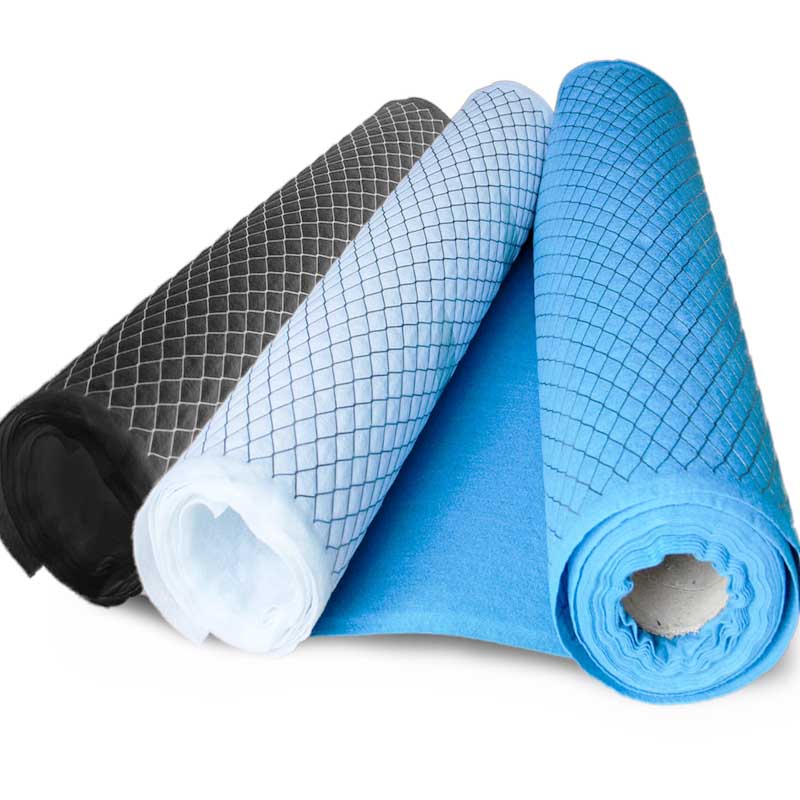In the world of air filtration, the customization of air pre filters is essential to meet the specific needs of various applications and environments. Air pre filters play a crucial role in removing larger particles and contaminants from the air before it reaches the primary filter, enhancing the efficiency and longevity of the entire filtration system. Customizing these filters allows for optimized performance tailored to unique requirements, whether in industrial settings, commercial buildings, or residential environments. This article explores the key aspects of customizing air pre filters, including material selection, design considerations, and practical applications.

1. Understanding the Role of Air Pre Filters
Air pre filters serve as the first line of defense in air filtration systems, capturing larger particles such as dust, pollen, and debris before they reach the primary filter. By removing these larger particles, pre filters help to extend the life of the primary filter, reduce maintenance costs, and improve overall air quality. Customizing air pre filters allows for better performance and efficiency, particularly in environments with specific contamination challenges or high air flow requirements.
2. Material Selection for Custom Air Pre Filters
The choice of material is fundamental in customizing air pre filters. Different materials offer various benefits depending on the application and environment:
Fiberglass: Known for its durability and affordability, fiberglass is commonly used in standard pre filters. It provides a good balance between filtration efficiency and airflow resistance. Custom fiberglass filters can be tailored for specific particle sizes and environmental conditions.
Foam: Foam filters are highly effective at capturing larger particles and offer excellent dust holding capacity. They are often used in environments where frequent cleaning or replacement is required. Custom foam filters can be designed with varying pore sizes and densities to match specific needs.
Synthetic Materials: Synthetic materials, such as polyester and polypropylene, offer advantages in terms of durability, chemical resistance, and lightweight properties. They can be engineered to provide high filtration efficiency while maintaining low pressure drops. Custom synthetic filters can be designed for specialized applications, such as high humidity or corrosive environments.
HEPA and ULPA Materials: For applications requiring extremely high filtration efficiency, HEPA (High-Efficiency Particulate Air) and ULPA (Ultra-Low Penetration Air) filters are used. Custom HEPA and ULPA filters can be designed to meet specific standards and ensure the removal of very fine particles, including airborne pathogens.
3. Design Considerations for Custom Air Pre Filters
Customizing the design of air pre filters involves several critical factors to ensure optimal performance:
Size and Shape: Custom filters can be designed to fit specific dimensions and shapes required by the air handling system. Proper sizing is essential to ensure a tight seal and effective filtration. Custom designs can accommodate non-standard filter slots and housing configurations.
Media Configuration: The arrangement of filter media affects both filtration efficiency and airflow resistance. Options include pleated media for increased surface area, panel filters for compact designs, and rolled media for specific applications. Custom configurations can be tailored to balance efficiency and airflow requirements.
Frame and Support: The frame of the filter provides structural integrity and support. Custom frames can be designed from various materials such as metal, plastic, or cardboard, depending on the application and durability needs. Frame designs can also include features like gaskets or seals to ensure a proper fit.
Airflow Requirements: Custom air pre filters must be designed to match the airflow requirements of the system. Factors such as air velocity, pressure drop, and filter efficiency need to be considered to ensure that the filter performs effectively without causing excessive resistance.
4. Applications for Custom Air Pre Filters
Custom air pre filters are used in a wide range of applications, each with its unique requirements:
Industrial Environments: In industries such as manufacturing, pharmaceuticals, and automotive, custom filters are needed to handle specific types of dust, fumes, and contaminants. Filters can be designed to withstand harsh conditions and provide optimal protection for equipment and personnel.
Commercial Buildings: Custom air pre filters in commercial settings, such as office buildings and shopping centers, are tailored to manage varying levels of airborne contaminants and maintain indoor air quality. Customization helps address specific challenges, such as high foot traffic or environmental pollutants.
Residential Settings: For residential applications, custom filters can address particular needs such as allergen removal or air quality improvement. Custom filters can be designed to fit standard HVAC systems and offer enhanced performance for home comfort.
Healthcare Facilities: In healthcare settings, custom air pre filters are critical for maintaining clean and sterile environments. Filters can be designed to meet stringent standards for particulate and microbial contamination, ensuring the safety of patients and staff.
5. Benefits of Customization
Customizing air pre filters offers several key benefits:
Enhanced Performance: Tailored filters provide improved filtration efficiency and air quality based on specific needs and environmental conditions.
Extended Filter Life: Custom filters can optimize performance, reducing the load on primary filters and extending their lifespan.
Cost-Effectiveness: Properly designed custom filters reduce the need for frequent replacements and maintenance, offering long-term cost savings.
Adaptability: Custom filters can be designed to fit unique system requirements and accommodate non-standard configurations, providing flexibility for various applications.
6. Best Practices for Customization
To achieve the best results in customizing air pre filters, consider the following best practices:
Conduct Thorough Assessments: Assess the specific needs of the application, including particulate types, airflow requirements, and environmental conditions, before designing custom filters.
Collaborate with Experts: Work with filtration experts and manufacturers to ensure that the custom design meets performance and quality standards.
Test and Validate: Perform testing and validation of custom filters to ensure that they meet the required specifications and perform effectively in real-world conditions.
Stay Informed: Keep up-to-date with advancements in filter materials and technologies to incorporate the latest innovations into custom designs.
Conclusion
Customizing air pre filters is a valuable approach to addressing specific filtration needs and optimizing system performance. By selecting the appropriate materials, designing to meet precise requirements, and considering various applications, manufacturers and users can achieve enhanced air quality, extended filter life, and cost-effective solutions. The ability to tailor air pre filters ensures that they meet the unique challenges of different environments, providing reliable and efficient performance across a wide range of applications.





